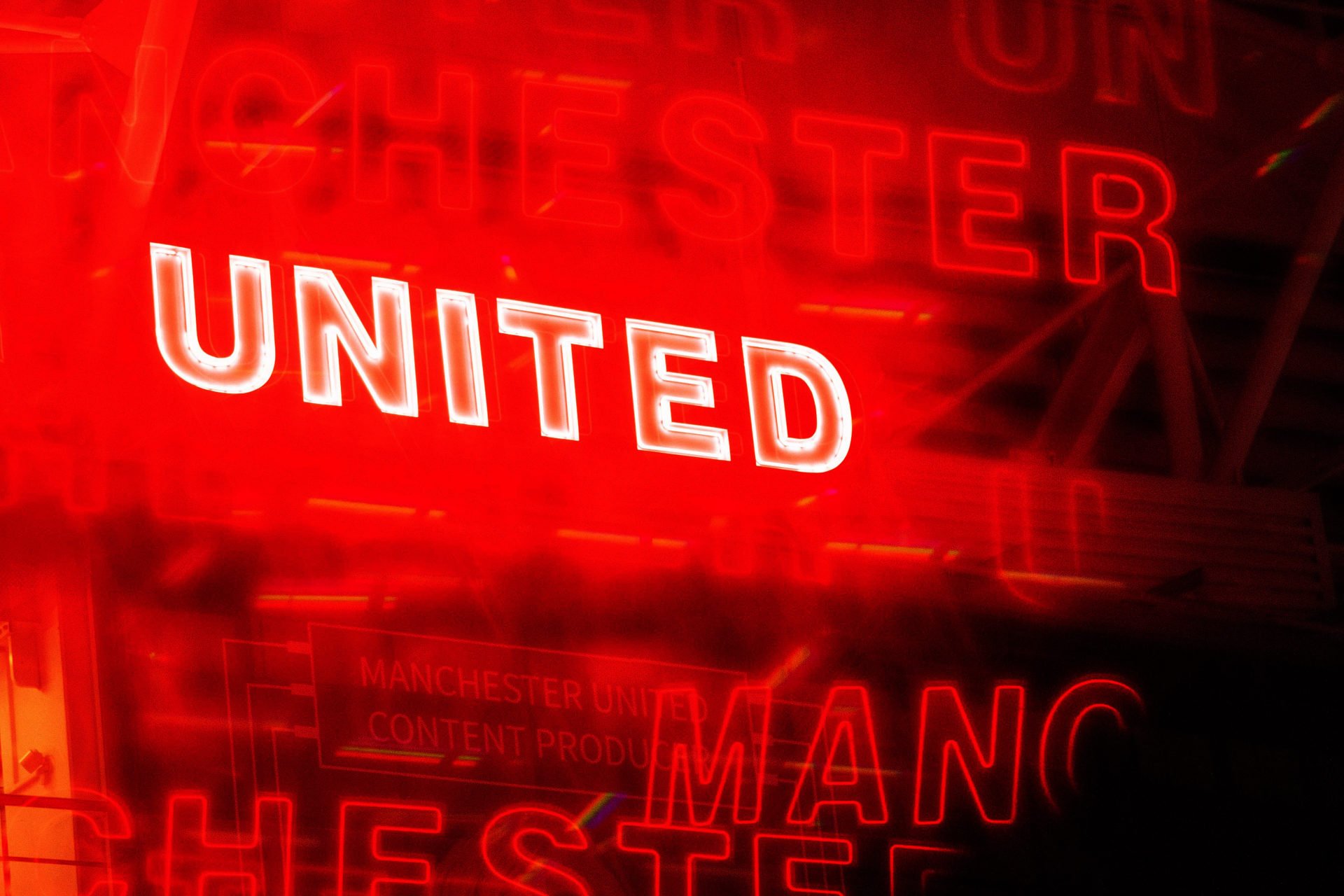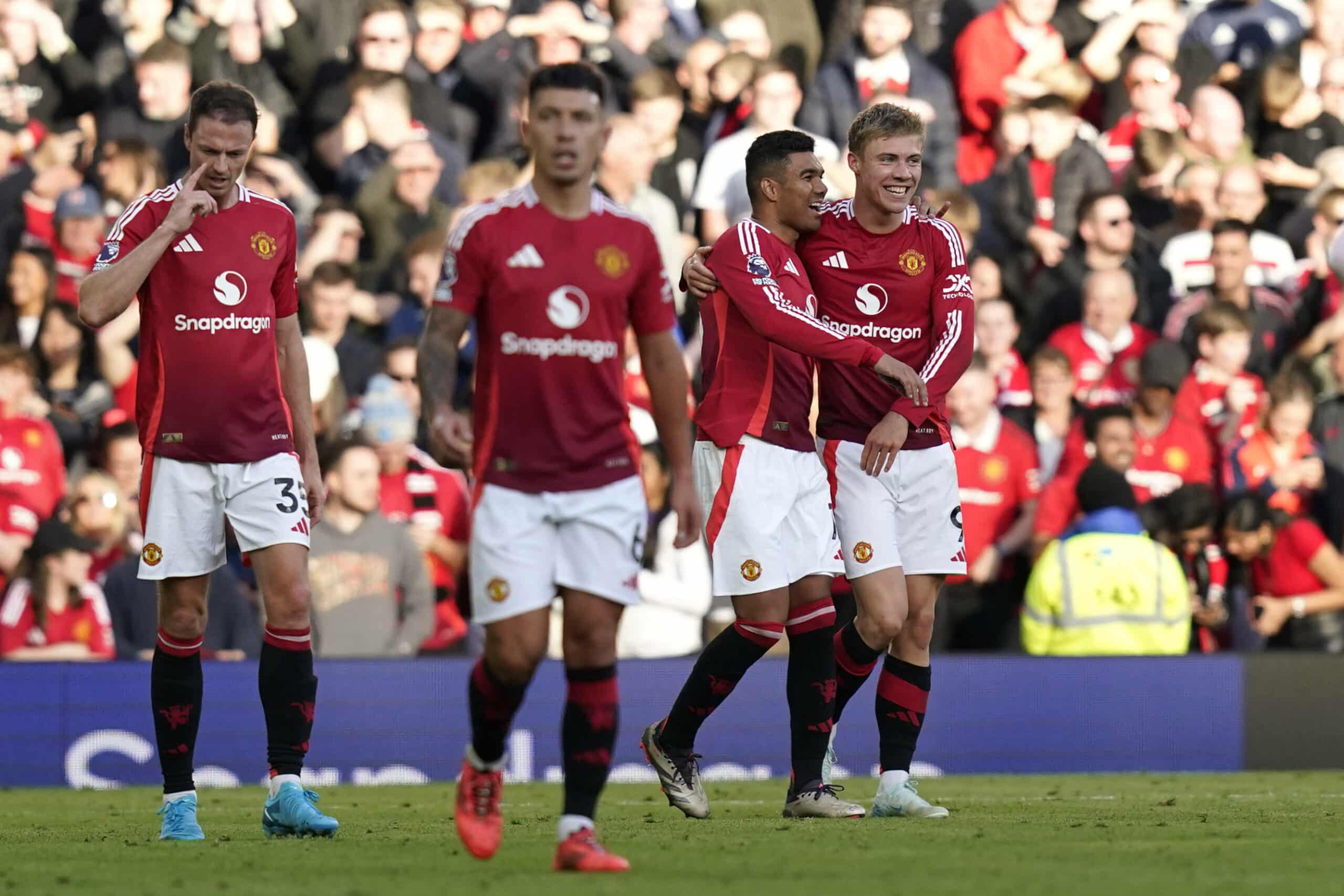
 Source:Manchester United
Source:Manchester United
Spiritually, Man United's home is in M16, Sir Matt Busby Way.
Technically, the club owned by Sir Jim Ratcliffe, the Glazers, and hundreds of other institutional investors is based in the Cayman Islands.
There are many unique things about Manchester United, but the fact that they are officially incorporated as a business in an offshore tax haven is not one of them.
A cursory look at the ownership structures of the other 19 Premier League clubs shows that a substantial number are based in Luxembourg, the Bahamas and Cypress among other nations.
Since 2012, United have been listed on the New York Stock Exchange.
In the past, the likes of Tottenham and Arsenal have been traded on other public exchanges but have since been delisted.
Crystal Palace's largest individual shareholder John Textor meanwhile wants to take his Eagle Football group public but has not yet been able to do so.
For supporters, there are two advantages of being a PLC.
Firstly, it gives them a chance to own a stake in the club they love.
And secondly, it means the club has a fiduciary duty to be financially transparent.
MORE UNITED STORIESThere are strict reporting requirements for businesses floated on the New York Stock Exchange, after all.
For starters, United have to publish their accounts on a quarterly basis.
Fans of every other English club only get annual results.
Even then, they must wait until February or March the following year to see them.
Currently, 22.
5 per cent of United's equity is publicly traded, with the Glazer family having earned around PS200m from their initial IPO over a decade ago.
The share price has fluctuated between $11 and $25 in that time, with landmark events such as the re-signing of Cristiano Ronaldo and Sir Jim Ratcliffe's part-takeover registering on the chart.
However, movements in the market are also dictated by some forces outside of United's control, as has been demonstrated by the latest news from New York.
One of United's biggest investors cuts stake Lindsell Train first invested in 2017 and are United's second largest individual instructional shareholder - that's individuals or groups that bought equity on the New York Stock Exchange.
As reported by Sportico, the London-headquartered firm have reduced their stake in the club by 20 per cent in the last quarter, leaving it with around a 12 per cent stake overall.
Significantly, Lindsell Train also own stakes in Juventus and Celtic.
Celtic turned an PS18m profit in 2023-24, but Juventus made an eye-watering loss of around PS167m.
Coupled with United's deficit of PS113m over the same period, the three clubs in Lindsell Train's portfolio have posted combined losses of PS262m.
Institutional investors like Lindsell Train aren't obliged to underwrite those losses but it hardly bodes well for the three clubs as capital appreciation projects (buy low, sell high).
Lindsell Train are also at something of a low ebb when it comes to their wider investment portfolio, with their assets under management falling by 15 per cent over the course of the last financial year.
That in turn has led to a need to generate cash flow, which could have been the catalyst to divest a large tranche of their United shares.
The pros and cons of public ownership Not all shares are created equal.
Including the stake owned by Lindsell Train, a quarter of the club's equity is publicly listed, but those shareholders have close to zero power in operational terms.
To many analysts meanwhile, the value of owning stock in United is limited.
The Glazers themselves have received the vast majority of the PS166m in dividends the club have paid out since 2005.
Ultimately, dividend payments are at the discretion of the Class B shareholders.
That is Ratcliffe and the Glazer family.
And voting powers - on matters such as the appointment of directors - are also consolidated almost entirely in the hands of the Class B shareholders.
However, some savvy traders have capitalised on the ups and downs of United's stock ticker to great effect.
In 2022 when United's share price hit a record high following news that Glazers were seeking strategic investment, Ariel Investments began to sell off PS54m worth of stock.
They have since bought back the majority of that stock at much more modest prices.
Tellingly, Ariel Investments' logo is a tortoise holding a trophy, often accompanied by the aphorism 'slow and steady wins the race'.
The also preach what they call 'active patience'.
That may be when a buyer wants to acquire 100 per cent of the club and take it private once again, just as was Sheikh Jassim's intention before he lost out to Ratcliffe.
.





